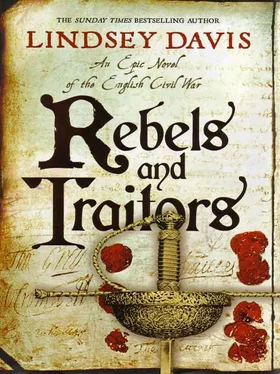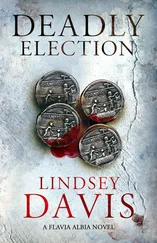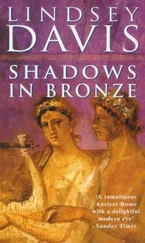Lindsey Davis - Rebels and traitors
Здесь есть возможность читать онлайн «Lindsey Davis - Rebels and traitors» весь текст электронной книги совершенно бесплатно (целиком полную версию без сокращений). В некоторых случаях можно слушать аудио, скачать через торрент в формате fb2 и присутствует краткое содержание. Жанр: Исторические приключения, на английском языке. Описание произведения, (предисловие) а так же отзывы посетителей доступны на портале библиотеки ЛибКат.
- Название:Rebels and traitors
- Автор:
- Жанр:
- Год:неизвестен
- ISBN:нет данных
- Рейтинг книги:4 / 5. Голосов: 1
-
Избранное:Добавить в избранное
- Отзывы:
-
Ваша оценка:
- 80
- 1
- 2
- 3
- 4
- 5
Rebels and traitors: краткое содержание, описание и аннотация
Предлагаем к чтению аннотацию, описание, краткое содержание или предисловие (зависит от того, что написал сам автор книги «Rebels and traitors»). Если вы не нашли необходимую информацию о книге — напишите в комментариях, мы постараемся отыскать её.
Rebels and traitors — читать онлайн бесплатно полную книгу (весь текст) целиком
Ниже представлен текст книги, разбитый по страницам. Система сохранения места последней прочитанной страницы, позволяет с удобством читать онлайн бесплатно книгу «Rebels and traitors», без необходимости каждый раз заново искать на чём Вы остановились. Поставьте закладку, и сможете в любой момент перейти на страницу, на которой закончили чтение.
Интервал:
Закладка:
Among new recruits in the Green Regiment, grinning, was Gideon Jukes.
Since his brother was a pikeman, Gideon had chosen to be a musketeer. Since Lambert was in the Blue Regiment, Gideon made sure he joined the Greens. Robert Allibone had paid for his musket, four feet long and twelve-bore. Gideon's father had joyfully set him up with other equipment: a forked barrel-rest, bandolier, sword, swordbelt and hangers. A leather coat and metal helmet completed the uniform. The first time he tried on his helmet, painted black against the rust, its heavy enclosing weight reminded him of the costume head he had worn years before as Third Dotterel. Like most of his comrades, he soon abandoned the helmet and was content with a much lighter Monmouth cap, made of soft felt. So far, none of them had witnessed the hideous results of being shot in the head.
Gideon saw little action at first. The Trained Bands reckoned only to defend London; they played no part in the inconclusive manoeuvres that went on elsewhere in 1642. For several months, Gideon received training only. A national Parliamentary army was commissioned in July, but the Trained Bands stayed separate. As a Londoner, Gideon believed this was correct. Possession of the capital, the seat of government since Roman times, with its strategic importance and its commercial connections, was a vital strength for Parliament. To hold London, while the King could only wander about the country ineffectually, gave Parliament a vital edge. The Trained Bands had to be here on guard.
In August, the King, who was visiting the north of England trying to generate support, formally raised his standard at Nottingham. It was a procedural move, a rallying point for recruits. It was also decisive: he had declared war upon his people.
At that point Parliament issued an order for London's protection. Ten thousand citizens were mobilised. The city closed down. Assembling by trade or guild, shouldering whatever tools they possessed, the people marched out to the surrounding fields and, week after week until autumn and winter brought freezing conditions, they toiled to construct roadblocks and earthworks. Women worked alongside men; Anne Jukes was there regularly, wielding a mattock and ferrying baskets of earth.
By the end of the year, all the city gates were locked with their portcullises down, streets were barred with mighty iron chains, every household had weapons at the ready and the Trained Bands were on day and night call-out. Supporters made loans and gifts to Parliament. There was regular recruitment; there were censuses of horses. Royalist sympathisers were targeted. Parliament issued decrees to summon known 'malignants', and to confiscate their horseflesh, weapons, money and plate. Those who were absent with the King had their homes broken open and possessions ransacked.
Everyone waited anxiously. They heard of skirmishes and sieges. In July the Earl of Essex had left London to take up overall command of the main Parliamentary army. The son of Queen Elizabeth's disgraced favourite, this heavy-jowled veteran had more military experience than any in the aristocracy and was a leading figure in the House of Lords. Famously touchy, he had survived his father's execution, his own divorce on grounds of impotence and then the flagrant adultery of his second wife. His fighting career had been undistinguished, though he had always been popular with his soldiers for his humane treatment of them, and they called him, affectionately, 'Old Robin'. Escorted by the Trained Bands, Essex mounted up at Temple Bar, and rode into the City, past St Paul's Cathedral and the Royal Exchange, then out through Moorgate on his way north through St Albans to Worcester.
The King eventually turned south, through the Midlands where he had a mixed reception. Up until that point there had been only manoeuvres. Then in October the King's army ran into Essex's forces near Kineton, at the foot of a ridge called Edgehill, and the first true battle of the civil war commenced.
The engagement was confused. Both sides claimed victory, though neither could capitalise on it. The two armies were traumatised by the confrontation, with their shocked commanders left temporarily at a loss. Essex withdrew to Warwick, the King to Oxford.
Exaggerating rumours in London claimed that Essex had won a great victory. Then it was said the King was racing south, with Essex in headlong pursuit. Their manoeuvres were more leisurely. But on the 6th of November, Essex and the Parliamentary army re-entered London, having marched straight down the old Roman highway of Watling Street. They were given a heroes' welcome and quartered out at Hammersmith, in preparation for an expected Royalist attack.
Meanwhile on leaving Oxford, the King ambled through Reading, besieging opponents' private houses more from spite than strategy.
Commissioners from Parliament rode out to try to negotiate peace. Despite their efforts, on the 12th of November the King's charismatic nephew Prince Rupert, a commander in the dashing Continental style, fell upon two Parliamentary regiments of foot that he encountered close to London at Brentford under cover of thick mist. Tales quickly arose of Prince Rupert's brutality. He was said to have massacred the garrison at Brentford; his men had tied prisoners head-to-toe and flung them into pigsties to endure the freezing night; the Royalists drove twenty Parliamentary supporters into the River Thames, forcing them into ever deeper water until they drowned. Whether true or not, such horrors reinforced opposition in London.
The Earl of Essex heard the guns from the House of Lords, where peers had been debating whether to order a cessation of hostilities. Essex galloped across Hyde Park to his army at Hammersmith. In the City a local deputation went to the Common Council, begging that the Trained Bands should now also be deployed.
Gideon Jukes was about to see his first military action.
Chapter Five — Turnham Green: 13 November 1642
Londoners loved a junket. Fairs and feasts had been part of city life since time immemorial. An excursion, with sightseeing, was bound to draw a crowd, especially if there might be gunfire. Parliament dispatched cheese, beer and bread to the army by road, with boats hauling munitions up the Thames. Mothers and wives of Trained Band members loaded carts with food and drink, while wiping away tears on their aprons as they waved off their men to protect the city. In case the defences failed, women boiled up cauldrons of hot water to pour down on attackers, and cluttered up the streets with empty barrels and old joint-stools, to get in the way of cavalry.
While drums beat to give them heart and to summon extra recruits, Skippon led out the Trained Bands, Gideon Jukes among them. From the east of the city particularly, where dirty and noisy processes were carried on, forges and foundries, dye works and tanneries fell silent and gave up their men. In the great markets, porters and stall-holders, fishmongers and slaughterers pulled on their boots and tightened their belts, then marched. From shops and from taverns came part-time pikemen and musketeers. Servants and their employers, apprentices and their masters poured forth until it seemed that all the males in London had been sucked from the streets, leaving behind an eerie quiet. Mothers with clenched jaws clutched their babies to their bodices, and listened to that stillness nervously. Only women, children and the old were left — the people that attackers would treat most cruelly.
Five of the six main regiments marched together westwards; one remained on guard. Sightseers who owned horses rode along with the departing troops. Girls pelted the soldiers with flowers, the boldest maidens running in among the ranks to press kisses upon them. The troops left the old city walls at Ludgate, moving from the workshop and commercial centre across the unsavoury valley of the Fleet river, past legal haunts at the Temple and the Inns of Court, then along the Strand with its grand noblemen's mansions. They passed the Banqueting House, the sole monument in a royal rebuilding project that would never now be completed, and then the crumbling old Whitehall Palace where Gideon saw in amazement that grass grew around the buildings, abandoned only a year ago when the King fled. Passing under the Holbein Gate, which was now manned by citizens instead of royal guards, they were cheered at the Houses of Parliament, then marched on beyond the turbulent suburbs, past the Westminster horse ferry, through the marshes and into the open countryside.
Читать дальшеИнтервал:
Закладка:
Похожие книги на «Rebels and traitors»
Представляем Вашему вниманию похожие книги на «Rebels and traitors» списком для выбора. Мы отобрали схожую по названию и смыслу литературу в надежде предоставить читателям больше вариантов отыскать новые, интересные, ещё непрочитанные произведения.
Обсуждение, отзывы о книге «Rebels and traitors» и просто собственные мнения читателей. Оставьте ваши комментарии, напишите, что Вы думаете о произведении, его смысле или главных героях. Укажите что конкретно понравилось, а что нет, и почему Вы так считаете.












